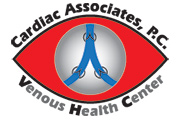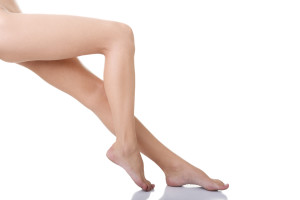
Washington DC Vein Specialists: So You’re Ready to Seek Treatment for your Vein Problems – Now What?
Congratulations. If you’re reading this article, it’s possible that, like so many before you, today was the day you woke up, looked at your varicose veins or spider veins in the mirror, and decided to finally do something about them.
Because we are specialists in vein disease treatment in Washington DC, we understand that making that decision is a major step. If you are like many people, you have spent months or even years trying to “live with” your swollen and discolored veins and the side effects they cause. You’re tired of your legs and ankles being constantly (and painfully) swollen, and you’re tired of your legs feeling tired and weak all the time. Most of all, you’re tired of how your vein problems have affected your appearance, and made you reach for your long pants or darkest stockings every time you look in the mirror.
Good for you. Speaking as professionals widely regarded as being among the best vein doctors in Washington, DC, we applaud your decision to no longer submit to the tyranny of vein disease, and instead do something about it. In this article, we’ll try to help by suggesting what your next steps should be.
First, get a professional venous health screening to get your facts straight
If you haven’t previously seen a top vein center in Montgomery County or elsewhere about your condition, that should be your first step. A venous health screening takes only about an hour, and is completely painless and non-invasive, but can determine exactly how serious your vein disease is and what should be done to eliminate it. Mild cases – a few small varicose veins or spider veins – can often be treated using conservative methods such as wearing compression stockings. More serious cases (or if your personal goals in seeking treatment include eliminating the unsightly swollen veins completely) may require more aggressive treatment.
Second, ask your Washington DC vein specialists to explain the treatment options to you
A good vein specialist will present all of the relevant options to you – from sclerotherapy to ambulatory phlebectomy to endovenous laser therapy – and will explain each of them to you and help you choose the treatment that best suits your condition and your personal goals. And don’t worry, because all of the treatment options provided by Cardiac Associates, P.C. are minimally-invasive and don’t even require you to go to a hospital. Instead, you’ll walk into a comfortable room in our Montgomery County offices and relax while the doctor painlessly removes your swollen and diseased veins forever. There is no need to miss work for “recovery time,” because none is needed – you literally walk into our offices with varicose veins, and walk out without them.
Third, and finally, decide which treatment options are best for you, and follow through on them
After you consult with Dr. Rana and settle upon a suitable treatment approach, work with him to schedule the necessary appointments. Then just show up and allow one of the top vein centers in Montgomery County to help you regain your vein health. Depending on how many varicose veins or spider veins you have, more than one appointment may be necessary, but know that within a very short time the unattractive veins will be gone forever. More important, the negative effects that your underlying vein disease have been having on your overall health will go away, and you’ll start to feel more energetic and more self-confident.
The first step above is still the most important, however. You’ve made the decision to do something about your vein problems, so now pick up your telephone and schedule a venous health screening. You’ll be happy you did.




